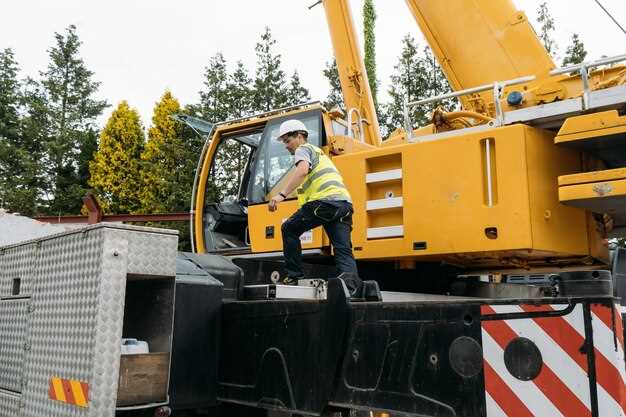

When it comes to construction projects, having the right tools is not just a luxury; it’s a necessity. One of the most critical tools in any construction fleet is a reliable work truck. These vehicles are designed to transport heavy loads, equipment, and personnel, making them essential for productivity on any job site.
Choosing the right work truck requires careful consideration of various factors that can affect your construction operations. From payload capacity to fuel efficiency, every aspect matters in ensuring that your investment serves its purpose effectively. This guide will provide you with essential insights into selecting a work truck that meets your specific needs, helping you navigate the complexities of this crucial decision.
Understanding the demands of your construction projects is the first step in making an informed purchase. Whether you need a truck for carrying materials, towing equipment, or facilitating onsite logistics, it’s important to identify what features are essential. This guide will cover key elements such as size, durability, and technology options to consider when selecting your next work truck.
Evaluating Your Load Capacity Requirements

When selecting a work truck for construction purposes, understanding load capacity is essential. Load capacity refers to the maximum weight a vehicle can safely carry, which directly affects operational efficiency and safety. To determine your load needs, first assess the types of materials and tools typically transported on the job site.
Consider the weight of construction materials such as concrete, steel beams, or lumber. Each material has a unique weight per cubic foot, and knowing these figures helps in calculating total load. Additionally, account for equipment like scaffolding, power tools, and safety gear that will also be transported. It’s crucial to compile this information to avoid exceeding the truck’s limits.
Next, reflect on the nature of your construction projects. For larger projects requiring heavy machinery, a truck with a higher load capacity is necessary. Conversely, if your work primarily involves lighter materials or tools, a truck with a lower capacity may suffice. This evaluation not only informs your choice but also ensures compliance with safety regulations.
Always consult the manufacturer’s specifications of the truck to understand its payload limits. Be aware that exceeding this capacity can lead to serious consequences, including vehicle damage and increased risk of accidents. Finally, consider future project demands to ensure your truck remains versatile and capable of adapting to various load requirements.
Choosing the Right Truck Type for Your Construction Projects
Selecting the appropriate truck for your construction needs is vital for ensuring efficiency and reliability on the job site. Each type of truck offers unique features that cater to different aspects of construction work. Understanding these distinctions can help you make an informed choice.
Chassis cabs are versatile trucks that provide a solid foundation for various attachments, such as dump beds or flatbeds. They are ideal for construction sites requiring frequent loading and unloading of materials. With their robust design, chassis cabs can handle heavy loads while remaining easy to maneuver in tight spaces.
Dump trucks, specifically engineered for transporting bulk materials, play a crucial role in construction projects. Their ability to quickly unload debris and aggregate saves valuable time during excavations or site clearances. These trucks come in various sizes, so it’s essential to select one that matches your project’s scale and requirements.
Pickup trucks are popular among construction professionals for their practicality and convenience. They are perfect for transporting tools, equipment, and a small number of workers to and from the job site. With their ability to handle lighter loads, pickups are an excellent choice for smaller projects or when agility is needed.
Another option to consider is the flatbed truck. This type provides a spacious, open cargo area suitable for transporting large or oddly shaped materials. For construction teams that regularly handle oversized equipment, flatbeds offer the flexibility needed to accommodate diverse loads easily.
Additionally, consider the terrain and conditions of your construction site. Off-road trucks may be necessary for projects in rugged or challenging environments. These trucks are designed with enhanced suspension and traction capabilities, providing stability and reliability where traditional trucks might struggle.
Lastly, think about your operational budget. The initial cost of the truck, fuel efficiency, and maintenance are key factors that can influence your overall investment. Choosing the right type of truck for your specific construction needs will not only enhance productivity but also optimize your resources effectively.
Understanding Maintenance and Operating Costs

When purchasing a truck for construction purposes, it’s crucial to consider not only the initial purchase price but also the long-term maintenance and operating costs associated with the vehicle. These costs can significantly impact your overall budget and project profitability.
Maintenance costs typically include routine services such as oil changes, tire rotations, brake replacements, and inspections. Trucks used in construction are often subjected to harsh conditions, so regular maintenance becomes vital to ensure reliability and longevity. Ignoring scheduled services can lead to more drastic and costly repairs down the line.
Fuel efficiency is another critical factor affecting operating costs. Larger trucks may consume more fuel, impacting daily operational expenses. Evaluating fuel economy ratings and opting for models with better efficiency can lead to significant savings over time, particularly for construction fleets that log substantial mileage.
Consider also insurance and registration fees, which can vary based on the truck’s make, model, and intended use. Trucks that are frequently utilized in construction may incur higher premiums due to the increased risks associated with heavy loads and challenging environments.
Keeping track of these factors will not only aid in budgeting but also ensure that your construction projects run smoothly and efficiently. A well-maintained truck can be a reliable asset, minimizing downtime and maximizing productivity on the job site.